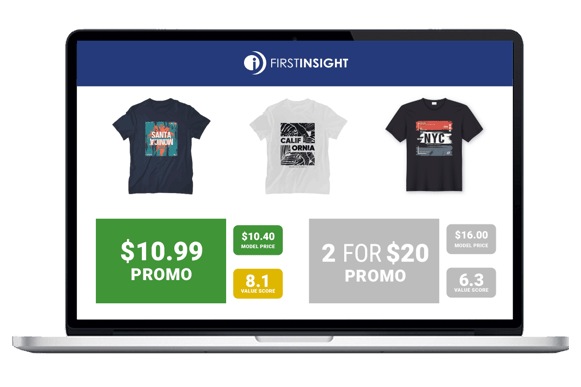Soliciting feedback from targeted consumer segments provides brands with actionable voice of the customer data that are critical in today’s highly competitive economic environment. Just a few years ago, digital marketing was a relatively inexpensive way to acquire new customers and drive sales. Soaring CPM (cost per thousand people reached) increases--39% at Meta and a whopping 70% at TikTok-- mean that marketers and merchants need to be more strategic to drive ROI.
The following are six ways that brand experience management will set up marketers and merchants for success:
1. Optimize advertising messaging
Drive greater results with promotions that are in sync with consumers’ desires. One case in point: a national retailer had too much inventory. They needed to understand whether pricing t-shirts at a promotional $10.99 each was a more powerful call to action than bundling them and offering two for $20. Voice of customer data indicated that the $10.99 pricing would drive higher sales, which resulted in a +16% sales plan for the retailer. Don’t give away margin on a gut feeling. Data-driven decision-making will create a greater bottom-line result.
2. Prevent misdirected brand initiatives
Understand the target audience before embarking on a new campaign. Targeting the wrong audience is the same as doing nothing, but much more expensive. Knowing what initiatives prompt various customer segments to act gives brands the data-driven knowledge they need to increase conversions, boost average order value, encourage repeat business, and improve loyalty.
3. Increase ROI with target audience feedback
Discover what type of content works across various consumer segments and why. Learn where numerous target audiences are most receptive to the message—and more likely to convert. The same product may appeal to assorted groups of consumers, but the messaging may fall flat. Brands can maximize sales of the same product across various consumer groups by A/B testing headlines, subject lines, and messaging. Why guess what will happen when tapping into the voice of the customer will arm retailers and brands with the information they need to make informed decisions?
4. Protect reputations from offensive offerings
A well-respected and large national brand used First Insight’s Brand Experience Management tool to test bedding designs with a targeted group of customers. It is fair to say that the feedback they received was shocking because where the retailer’s merchants saw a geometric print, the consumers saw an offensive symbol. Canceling this product before it even launched was much less expensive, both to the bottom line and—more importantly—the retailer’s reputation and the environment. Sometimes everyone inside is too close to the product or the marketing message and asking customers for their perspective will never be a wasted effort.
5. Eliminate under-performing products
Culling products that no one wants is an easy way to reduce inventory and free up expensive warehouse space. Removing 10 – 30% of low-valued product improves overall assortment productivity and yields greater full-price sales. Getting product and assortment feedback from consumers before going into production or hitting the shelves not only saves money and reduces markdowns, but also conserves valuable resources that can be better allocated elsewhere. Overproduction is one of the biggest impediments to achieving ESG goals in retail. The more a brand knows about what will sell and what will fail before production and shipping, the fewer products will end up in landfills.
6. Maximize new product launches
Experience management software uses AI to give merchants the confidence they need when bringing new offerings to market. The lack of historical data doesn’t have to be a void filled only with big question marks. Unknowns can be resolved by quickly and efficiently going out to thousands of consumers to gather their thoughts. Applying artificial intelligence to the results supports new offerings with predictive analytics which can result in an 80% improvement in new product launch success rates.
The upcoming Holiday season is nearly the inverse of Holiday 2021 when inventories were low and demand was high. Challenging times call for listening to what customers have to say, testing new strategies, and then making data-driven decisions to create the greatest return on investment. Promotional strategies that stand apart from the crowd and use predictive analytics to drive sales can be more easily achieved with First Insight’s Brand Experience Management solution.













